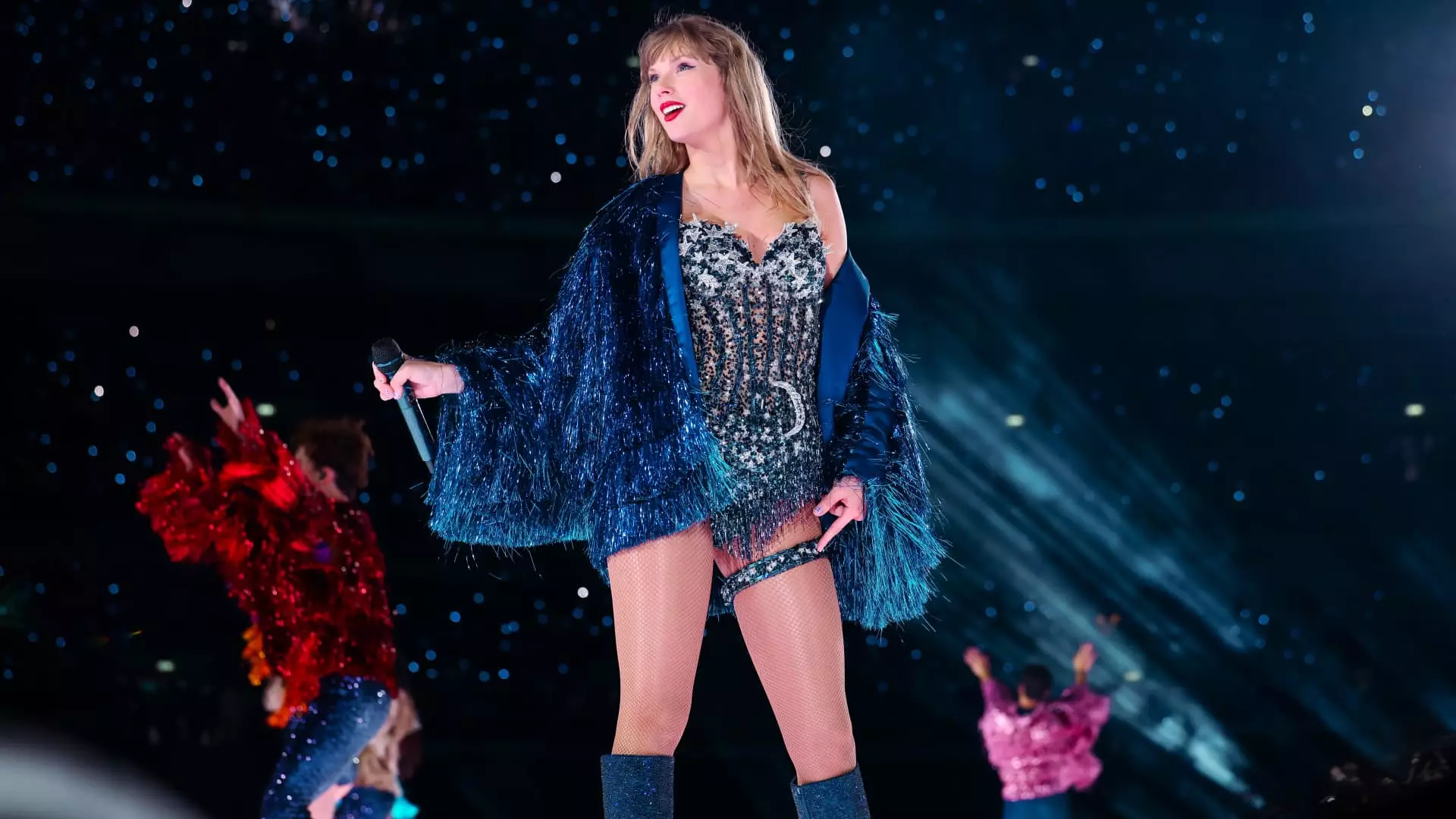In today’s emotionally charged political landscape, the intersection of celebrity and politics has become increasingly pronounced. This dynamic was exemplified in a recent exchange between former President Donald Trump and pop sensation Taylor Swift, ignited by Swift’s endorsement of Vice President Kamala Harris. The endorsement, which Swift shared on Instagram shortly after a pivotal presidential debate, reflects not just her political stance but the potential sway that public figures can exert over their fans and the wider electorate.
Swift’s decision to support Harris was articulated through an emphatic proclamation of her belief in Harris as a “steady-handed, gifted leader.” This endorsement stemmed from feelers about the current political climate characterized by “chaos.” The reference to personal comments made by Republican vice presidential nominee JD Vance about “childless cat ladies” further deepened Swift’s message, as she signed off her post with this provocative label—sowing seeds of discourse about gender and political identity in the process.
Trump’s reaction was typical of his combative style, as he took to Truth Social to express vitriol against Swift in a manner that resonated with his supporters. “I hate Taylor Swift!” was his explosive declaration, amplifying the tense mudslinging that often defines his political interactions. Interestingly, this response was not merely defensive; it was an offensive maneuver, aimed at undermining Swift’s credibility as a political influencer. The historical context reveals a pattern where Trump dismisses celebrity endorsements from opponents, regardless of their stature or public affinity.
Swift reasserted her position by addressing the wave of fake news surrounding her and her fanbase, notably AI-generated images depicting fans rallying behind Trump. This necessitated her endorsement as a means of taking control of her narrative and consolidating her stance against misinformation—a broader commentary in her endeavor to leverage her platform beyond mere entertainment.
In the wake of Trump’s tirade, the Harris-Walz campaign ingeniously recognized the value of Swift’s celebrity status. A spirited statement, laden with Swift’s musical references, underscored their attempt to elevate her endorsement while critiquing Trump’s divisive tactics. The campaign spokesperson, Sarafina Chitika, suggested that the American public was ready to move beyond the “chaos of the Trump era” and referenced Swift’s vast influence as a vehicle for shifting public sentiment.
While the effectiveness of celebrity endorsements remains a topic of debate, the immediate aftermath of Swift’s declaration proved impactful. With over 300,000 visits to Vote.gov propelled by her post, it underscores a crucial insight: celebrity status can serve as a catalyst for political engagement, directing followers toward actionable political measures.
The saga involving Donald Trump and Taylor Swift presents a tantalizing case study of how celebrity and politics are entwined in contemporary society. As public figures leverage their platforms for political expression, the implications of celebrity endorsements are ripe for exploration. Whether they can significantly steer the electoral process remains uncertain, but they undoubtedly ignite conversations about leadership, accountability, and the very nature of influence in modern democracy. Not only does this incident exemplify the contentious interplay of personalities in politics, but it also beckons a deeper consideration of how celebrity engagement might shape voter consciousness in the elections to come.


Leave a Reply